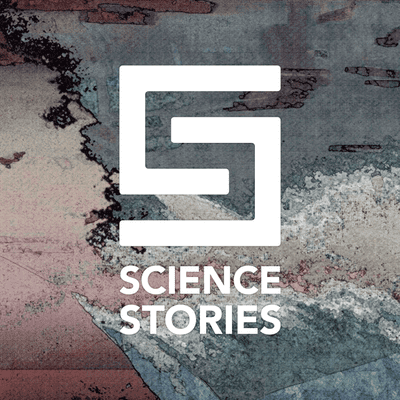
Science Stories
Danish
Technology & science
Limited Offer
2 months for 19 kr.
Then 99 kr. / monthCancel anytime.
- 20 hours of audiobooks / month
- Podcasts only on Podimo
- All free podcasts
About Science Stories
Science Stories fortæller historier om videnskab baseret på nysgerrighed og fascination af viden og indsigt, men vi kan også være kritiske og stille spørgsmål ved veletablerede dogmer. Vi stræber efter at forstå grundlaget for viden og sætte den i perspektiv. Redaktionen er uafhængig og ikke underlagt udefrakommende politiske eller kommercielle interesser.
All episodes
333 episodes[Best of] Phages regulate bacteria growth on earth
Today’s story is a good example of how little we know about biology and life, and how we can use our knowledge to better fight diseases and environmental threats. We are going to talk about bacteriophages or just fages. These are small viruses which attack bacteria. The story is literally about life and death and most organisms on earth are being killed every week. We have covered this topic before but, but in this podcast we will go deeper into the substance and ask one of the current frontier researchers from the biocomplexity group at the Niels Bohr Institute in Copenhagen Namiko Mitarai Japan.
Europe’s research investment deficit
The Cost of Underfunding Science Almost 40 years ago the interviewer read a paper on how Europe lacked behind in science and how an economic deficit compared to USA and Japan was building up year year after year. In the year 2000 Minister Mariano Gago mobilised the EU Council of Ministers to agree on an investment scheme for public research suggesting a minimum of 1% of GDP . This was followed by a recommendation of 2% private investment. Further inputs came with the Sapir Report in 2003 And the establishment of European Research Council (2007) Now Europe is discussing the Mario Draghi report (2024) But most European countries are still underspending in their funding for science. The interview is with former Head of Communication at the European Science Foundation Jens Degett and former President of the European Research Council Jean Pierre Bourguignon.
[Best of] From the dark ages to life
[Best of] From the dark ages to life by Science Stories
Europe’s Win and Worry with Artificial Intelligence
Science Stories is visiting the AI in Science Summit 2025 co-organized by the European Commission, The Danish EU Presidency and The University of Copenhagen. There is full house with 1200 participants, and the topic is all aspects of artificial intelligence. Science journalist jens Degett is trying to understand artificial intelligence better and has asked Chair of the Summit Steering Committee, Director of the Danish Pioneer Centre for AI, Professor of Computer Science at the University of Copenhagen Serge Belongie to explain what artificial Intelligence is and why it is important.
[Best of] Hologenomics. How organisms interact and evolve
DNA and RNA sequence analysis enable researchers to form a total overview of which species of microorganisms and parasites live with humans, animals and plants. It is not just in our gut where microorganisms are playing a role in our digestion. Also on the skin and all mucous membranes, in the mouth and all the way down into the hair follicles, we live together with parasites and microorganisms which help to shape our lives and our development. This knowledge makes it possible to see organisms in a far more holistic perspective, which provides a far better understanding of the factors that have evolutionarily shaped the species as they now appear in nature. In this podcast, Science Journalist Jens Degett talks to Professor Marcus Thomas Pius Gilbert from the Center for Evolutionary Hologenomics (CEH) at the University of Copenhagen. The center received DKK 67.7 million from the Danish National Research Foundation.
Choose your subscription
Limited Offer
Premium
20 hours of audiobooks
Podcasts only on Podimo
All free podcasts
Cancel anytime
2 months for 19 kr.
Then 99 kr. / month
Premium Plus
Unlimited audiobooks
Podcasts only on Podimo
All free podcasts
Cancel anytime
Start 7 days free trial
Then 129 kr. / month
2 months for 19 kr. Then 99 kr. / month. Cancel anytime.





































